Welcome to the newest online issue of Scotch Bonnet. This marine education newsletter also is available as a PDF — if you’re like me and want to keep a hard copy!
I hope that all the classroom teachers are settling into the 2017–2018 school year and that your students are off to a great start. For informal educators, I hope you have had a busy summer, are ready for a wonderful fall, and are thinking about new program development over the winter.
Thanks to Pat Curley, Lauren Daniel, Melissa Dowland, Carolyn Garris, D’Nise Hefner, Kevin Hining, Keith Mastin, Laura Sirak-Schaeffer, Dave Sybert and Dana Thomason for their contributions to this issue. Wishing you all a wonderful winter season!
Explore this issue of Scotch Bonnet. There are professional-development opportunities and family explorations for everyone. Take advantage of these wonderful conferences, workshops and more, especially if you’re working on your environmental education certification. Keep reading for those unique opportunities and ideas for educators. There is a lot going on in North Carolina and beyond!
sites.google.com/site/blueheronbowl
The 2018 Blue Heron Bowl will be held on Saturday, Feb. 17, 2018, at the University of North Carolina Wilmington’s main campus. The event will be hosted by UNCW, the Center for Marine Science and Watson School of Education.
The Blue Heron Bowl is North Carolina’s regional marine science quiz bowl. Two teams, each composed of four students and one alternate, square off against each other to answer questions related to marine science. Many of these students are coached by a marine science or general science teacher who sponsors their training. Each match consists of six minutes of toss-up and bonus questions, followed by two team challenge questions, ending with a final six minutes of toss-up and bonus questions.
Winners of the Blue Heron Bowl will go on to the national competition in April 19 to 22, 2018, in Boulder, Colorado. The Blue Heron Bowl championship team will compete against 25 other regional teams over two days!
Congratulations to the North Carolina School of Science and Math for coming in third overall at the 2017 National Ocean Science Bowl in Corvallis, Oregon.
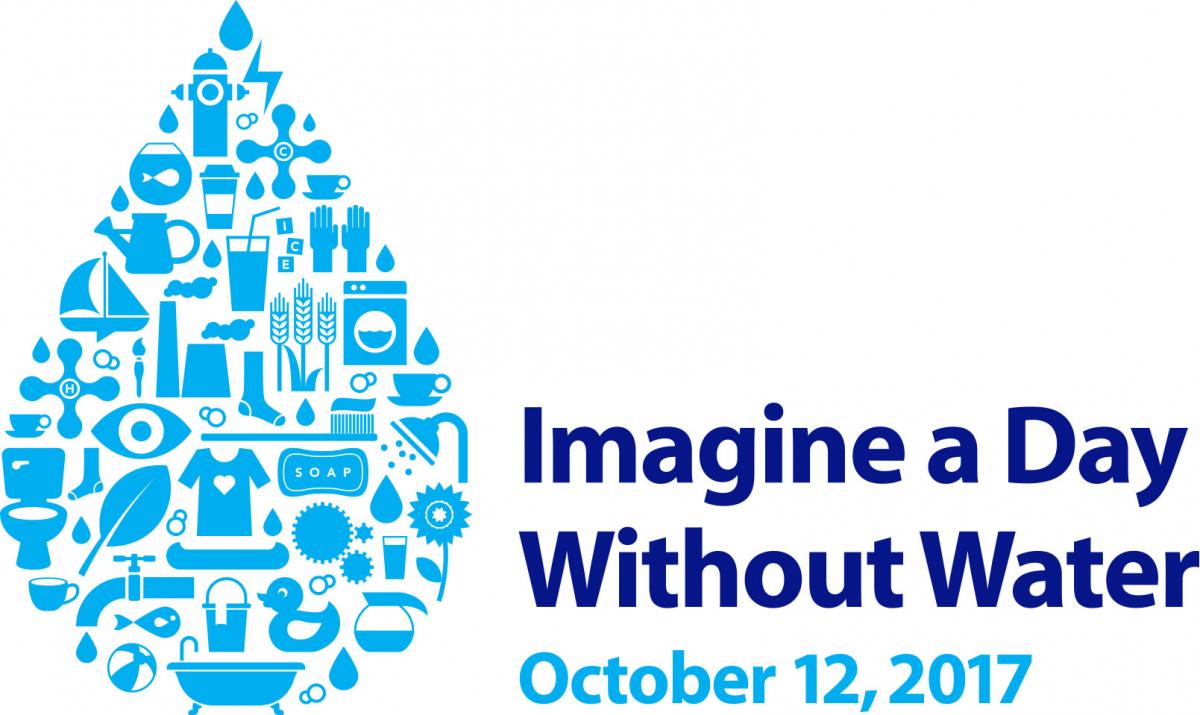 This year’s “Imagine A Day Without Water,” set for Oct. 12, hopes to raise awareness of the importance of water in our lives. Many of us take the water systems that bring clean water to and from our homes for granted. We just turn on the tap and flush our toilet without thinking twice about where that water comes from — and where it will go! But can you imagine a day without water? Without safe, reliable water, and wastewater service?
This year’s “Imagine A Day Without Water,” set for Oct. 12, hopes to raise awareness of the importance of water in our lives. Many of us take the water systems that bring clean water to and from our homes for granted. We just turn on the tap and flush our toilet without thinking twice about where that water comes from — and where it will go! But can you imagine a day without water? Without safe, reliable water, and wastewater service?
The N.C. Division of Water Resources would like to encourage students all over North Carolina to take some time to think about their own water consumption. Classroom teachers, after brainstorming all the ways we use water, ask your students to draw a picture, make a 15-second video, write a news article or even create a performance.
Please share these with Lauren Daniel. She would love to post these on the NC DWR education website. Submissions must be in by Oct. 10 so she can have them posted for “Imagine A Day Without Water” on Oct. 12. Be sure to include the student’s name, grade, school and city.
Send submissions to Lauren Daniel, NC Project WET/Stream Watch Coordinator at Lauren.Daniel@ncdenr.gov or at 1611 Mail Service Center, Raleigh, NC 27699-1611.
What: Find Your Muse on the Millpond
Where: Robertson Millpond Preserve, Wake County
When: Saturday, Nov. 11; 12:30 to 5:00 p.m. (please eat lunch before arriving)
Cost: $55 (includes canoe rental, resources)
CEUs: 4 contact hours
URL: http://naturalsciences.org/calendar/event/millpond
Join museum educators and Piedmont Poet Laureate Mimi Herman in an exploration of the connections between nature and writing. Discover an amazing swamp ecosystem as we paddle on beautiful Robertson’s Millpond in eastern Wake County, and use the beauty of nature and the wonder of science as a means to express yourself through poetry. This workshop is generously supported by the United Arts Council of Raleigh, the Raleigh Arts Commission, the Durham Arts Council and the Orange County Arts Commission.
What: Educator Trek: Gene, Alleles, and Chromosomes, Oh My!
Where: N.C. Museum of Natural Sciences, Raleigh
When: Saturday, Dec. 9; 9:00 a.m. to 5:00 p.m.
Cost: $40 (includes take-home resources)
CEUs: 8 contact hours
URL: http://naturalsciences.org/calendar/event/educator-trek-gene-alleles-and-chromosomes-oh-my
Need a refresher on how DNA, chromosomes, genes and alleles are related? Want some tips on how to demonstrate the importance of meiosis to genetic variation? Spend the day in the Micro World Investigate Lab testing out a variety of hands-on genetics activities appropriate for upper elementary and middle-school students and making instructional materials to take back to your classroom.
What: Where Swans Fly and Bears Walk
Where: Pocosin Lakes National Wildlife Refuge, Plymouth
When: Friday, Jan. 5 (depart Raleigh at 3:30 p.m.) to Saturday, January 6
Cost: $90 (includes transportation, lodging, some meals)
CEUs: 20 contact hours
URL: http://naturalsciences.org/calendar/event/where-swans-fly-and-bears-walk
Experience one of the greatest wildlife spectacles in North Carolina — thousands of tundra swans, snow geese and other waterfowl over-wintering in an area rich in wildlife, such as black bears, bobcats and red wolves. Learn winter bird identification, tips on preserving tracks and signs, and ideas for incorporating wild creatures into your teaching.
What: Mammal Collections
Where: N.C. Museum of Natural Sciences, Raleigh
When: Saturday, Feb. 10; 9:00 a.m. to 5:00 p.m.
Cost: $40 (includes specimen preparation kit and specimen to prepare)
CEUs: 8 contact hours
URL: http://naturalsciences.org/calendar/event/collections
Learn techniques used by museum curators to collect, prepare and care for bird specimens in a research collection. Get hands-on experience by preparing a spread wing and other bird parts for the museum. Explore the museum’s vast research collection of birds and discover options for developing a natural history collection for educational purposes.
This workshop is designed for environmental educators (i.e., park and nature center employees); however other educators are welcome to attend.
Get credit!
Participants receive credit for North Carolina’s Environmental Education Certification Program (Criteria 2 or 3). Details at http://www.eenorthcarolina.org/certification–about-the-program.html.
Looking for other opportunities?
For more information about teacher education programs, contact Melissa Dowland at Melissa.Dowland@naturalsciences.org or 919-707-9898.
www.ncaquariums.com/fort-fisher
What: Sea Turtle Exploration Sea Turtle Workshop
When: Saturday, Oct. 7; 9:00 a.m. to 3:30 p.m.
Where: N.C. Aquarium at Fort Fisher, 900 Loggerhead Road, Kure Beach
Cost: $25 (includes admission, behind the scenes tour, access to the curriculum)
URL: https://reservations.ncaquariums.com/fortfisher/Info.aspx?EventID=20
The N.C. Aquarium at Fort Fisher is offering a workshop featuring their Sea Turtle Exploration, a curriculum to help educators engage students in the fundamentals of STEAM through ready-to-use, standards-based lesson plans and sea turtles. Join them on Saturday, Oct. 7, for a hands-on teacher workshop guiding you through our new curriculum and website.
In addition to the curriculum, you will learn about additional resources such as weekly blog posts that will be made during the school year. Topics will include species profiles, aquarium staff spotlights, behind-the-scenes videos, new lesson plans and more. Follow the growth of aquarium hatchling sea turtles by visiting the blog each week.
Aligned with the Common Core standards, your class will be able to “adopt” a turtle and learn about its care and growth. By adopting a sea turtle, you will receive weekly updates with information including the turtle’s current weight and length. Each class also will receive a certificate of participation.
By the end of the workshop, you will be familiar with the website and curriculum and how to implement the lessons in your own classroom. The workshop will include a behind the scenes tour to meet one of our sea turtles.
Please bring a reusable water bottle, and pack a waste-free lunch, if you choose. Our snack shop, Shark Bites, will be open and there are lunch options off-site as well.
This workshop will count toward N.C. Environmental Education Certification (Criteria I) and consists of 6 contact hours that may count toward CEUs for teachers.
What: KidWind workshop
When: Saturday, Oct. 28; 9:00 a.m. to 4:00 p.m.
Where: CMAST, 303 Ocean Circle, Morehead City
Cost: $150 per team (3 members)
Are you interested in ways to bring renewable energy education into your classroom? Are you curious to learn activities you can provide for your students to learn about wind energy? Maybe you’ve heard about the KidWind competition at the UNC Coastal Studies Institute on Feb. 3, 2018, and want support for your team? (See page x for competition information.)
The Science House at NC State’s Center for Marine Sciences and Technology in Morehead City is offering a workshop to help team leaders and their students learn how to build a wind turbine suitable for KidWind competitions and wind energy education. The workshop will provide you with fun, hands-on learning opportunities to teach about building and testing wind turbines. Team leaders are invited to bring two team members (fourth- to eighth-grade students or another teacher) for a day full of exciting wind turbine activities.
New to this type of thing? Gather a team and choose two members to join you on Oct. 28 at CMAST in Morehead City. You do not have to participate in the KidWind Challenge to participate in the workshop; however, this workshop will give you everything you need to be competitive.
Teams will receive a full wind turbine kit, valued at $100. Register at the URL above. If you have questions about the workshop, email Pat Curley at pwcurley@ncsu.edu.
www.ncwildlife.org/Learning/Courses-Seminars-Workshops
What: All about mountain trout, including how to catch them
Where: Valle Crucis Park, 2892 Broadstone Road, Banner Elk
When: Wednesday, Nov. 1; 10:00 a.m. to 3:00 p.m.
Cost: Free, but preregistration is required
Please come to Valle Crucis Park (vallecrucispark.org) in Watauga County for a 5-hour Criteria II/III workshop to learn about and fish for mountain trout. The workshop will include information on trout life history, habitat needs and trout management in North Carolina, with an emphasis on brook trout conservation.
The day will be spent inside and outside, so dress accordingly. Participants will have an opportunity to observe and assist with an N.C. Wildlife Resources Commission trout stocking effort on the Watauga River. Finally, participants will learn knot tying, fishing tips, trout regulations, general spin-fishing and fly-fishing methods to catch trout, as well as how to find places to go fishing. Participants will also have the opportunity to fish.
Due to limited equipment, the class will be restricted to the first eight applicants. Participants should come prepared to get in or near the water, so please bring waders or rubber boots if possible. The workshop will proceed rain or shine, so please bring a jacket, rain coat, etc.
The class will be held in a great classroom (with water and restrooms); please bring lunch and any snacks you might want. This workshop is suitable for formal and nonformal educators. EE certification and CEU credits are available upon workshop completion. Ages 18 and up.
To register, or for more information, contact Kevin Hining at kevin.hining@ncwildlife.org or 336-213-9692.
www.eenorthcarolina.org/certification–requirements.html
What: Methods of Teaching Environmental Education
When and Where:
Cost: FREE, but pre-registration is required
MOTEE is a Criteria 1 workshop, required for N.C. Environmental Education Certification. The focus of this 10-hour workshop is to prepare participants from a variety of educational backgrounds and experiences, in both the formal and nonformal sectors, to use exemplary environmental education teaching methods. Participants will learn about a variety of teaching techniques, methods and instructional strategies. The workshop will include multiple interactive components to illustrate these concepts.
Participants must have completed Basics of Environmental Education, a prerequisite for this workshop.
The workshop facilitators are Amanda Lanier, curator of education at the Reynolda Gardens of Wake Forest University, and Kelli Isenhour, director of education for Kaleideum North.
To register, please contact Kelli Isenhour at kisenhour@kaleideum.org or 336-714-7106.
www.ncagr.gov/SWC/educational/FLP.html
What: Project Food, Land & People
When: Wednesday, Nov. 15; 9:00 a.m. to 4:00 p.m. Optional field trip on Thursday, Nov. 16; 9:00 a.m. to 1:00 p.m.
Where: UNC Coastal Studies Institute, 850 Highway 345, Wanchese
Cost: FREE, but preregistration is required
Project Food, Land & People (FLP) is committed to helping people of all ages better understand the interrelationships among agriculture, the environment and people of the world. The curriculum used — Resources for Learning — consists of 55 hands-on lessons for students in grades preK-12, with subjects ranging from environmental science and stewardship to human populations and land-use issues.
This workshop is approved for 6 or 10 hours of N.C. Environmental Education Certification (Criteria I) credit depending on participation in the optional field trip. Please bring a bag lunch and drink. The FLP Resources for Learning curriculum guide is available at no charge this year through support from individual county soil and water conservation districts.
For more information, contact Carolyn Garris, Area V Education Committee, Pitt County Soil & Water Conservation District, at carolyn.garris@pittcountync.gov or 252-902-1746.
sfrc.ufl.edu/extension/ee/climate/
What: Southeastern Forests and Climate Change, High School PLT Workshop
When: Wednesday, Nov. 15; 9:00 a.m. to 4:00 p.m.
Where: CMAST, 303 Ocean Circle, Morehead City
Cost: $20 per person
URL: https://thesciencehouse.wufoo.com/forms/z1ednovm0lu3lk6
This workshop will introduce the Project Learning Tree (PLT) secondary module on climate change impacts on southern forest ecosystems, the role of forests in sequestering carbon, and strategies for reducing greenhouse gas emissions and adapting to changing climatic conditions.
The module includes 14 experiential activities designed for use in life science, environmental science and agriculture classes in grades 9-12, with adaptations for use in middle-school classrooms. To learn more about the material, visit http://sfrc.ufl.edu/extension/ee/climate/.
Participants will leave with a copy of the module and will receive another PLT secondary module, Focus on Forests, provided free of charge in partnership with N.C. Forestry Association.
This workshop is offered to teachers and nonformal educators for $20. This fee includes lunch and materials. Teachers who attend this workshop will receive CEUs and EE Certification Credit, and will be able to borrow equipment from The Science House loan program.
Registration information is available at the URL above. For more information, contact Pat Curley at pwcurley@ncsu.edu.
What: Growing Up WILD
When: Thursday, Dec. 14; 9:00 a.m. to 4:00 p.m.
Where: Blue Jay Point County Park, Center for Environmental Education, 3200 Pleasant Union Church Rd, Raleigh
Cost: FREE, but preregistration is required.
URL: https://apm.activecommunities.com/wakeparks/Activity_Search/2284
Growing Up WILD is geared toward educators of children ages 3 to 7 and is correlated to the National Association for the Education of Young People Standards and the Head Start Domains. Facilitated by Casey Williams, this 6-hour workshop counts as a Criteria I workshop in the N.C. Environmental Education Certification Program. CEU credit will be available upon the completion of a homework assignment.
Bring a bag lunch.
sciencehouse.ncsu.edu/programs/cmast-stem-and-literacy-reading-in-science/
What: Reading in Science workshop
When: Monday, Jan. 22 and Tuesday, Jan. 23, 2018; 9:00 a.m. to 3:00 p.m. each day
Where: CMAST, 303 College Circle, Morehead City
Cost: $130 per person
URL: https://thesciencehouse.wufoo.com/forms/z1o1kyax120edjt/
Literacy skills are a critical, yet often overlooked, part of science instruction. During this two-day workshop, educators will learn that literacy skills aren’t add-ons to the science class — they are critical parts of instruction. Participants will learn to use both literacy and science skills in the classroom to prepare our students for STEM in the future.
The workshop will be held at the NC State Center for Marine Sciences and Technology in Morehead City on Jan. 22 and 23 from 9:00 a.m. to 3:00 p.m. each day. The workshop will provide valuable training in:
This course follows guidance from the N.C. Department of Public Instruction for the requirement for one CEU in Reading Instruction. For more information, contact Pat Curley at pwcurley@ncsu.edu.
The UNC Coastal Studies Institute, in partnership with KidWind, Jennette’s Pier, the Science House at CMAST and Appalachian State University, will host the second annual North Carolina KidWind Challenge on Saturday, Feb. 3, 2018.
This event challenges student teams to design and construct a wind turbine that will create the most possible power, document and present their research and construction process, and engage in a variety of instant challenges. Students can compete in either the 4th to 8th grade or 9th to 12th grade divisions.
This year’s event will take place at the UNC CSI at 850 Highway 345, Wanchese. Please stay tuned for additional details regarding registration, prizes and teacher incentives. For more information, contact David Sybert at dmsybert@csi.northcarolina.edu or 252-475-5451.
nairegion3.wordpress.com/annual-workshop/
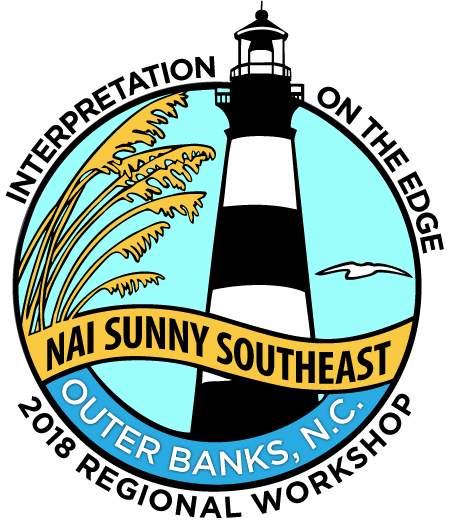 Are you familiar with the National Association for Interpretation (NAI)? If you aren’t, then it’s time to learn!
Are you familiar with the National Association for Interpretation (NAI)? If you aren’t, then it’s time to learn!
The NAI is a 501(c)(3) not-for-profit professional organization dedicated to advancing the profession of heritage interpretation. It currently serves about 5,000 members in the United States, Canada and over 30 other nations.
North Carolina is in the Sunny Southeast region. Our annual regional workshop, “Interpretation on the Edge,” will be hosted by the N.C. Aquarium on Roanoke Island from Feb. 27 to March 2, 2018. The meeting will be held at UNC CSI at 850 Highway 345, Wanchese.
If you’re already a NAI member, this a great time to network with old friends, learn what is at the forefront of the field, and experience the rich cultural and natural history of the Outer Banks. If you’re new to NAI, attending the regional workshop is a great opportunity to dip your toes in and learn more about the organization.
We’re currently accepting applications for proposals for concurrent sessions that will be held Wednesday, Feb. 28, and Friday, March 2. We welcome suggestions for lectures, roundtable discussions and poster presentations. We are seeking diversity in topics, as well as in target audiences (zoos vs. history centers, entry vs. seasoned professionals, management vs. front-line staff, etc).
Fill out the concurrent session application at https://goo.gl/forms/BuD0VO3iqcc1awVh1.
If you have questions regarding the workshop, concurrent sessions or anything else, contact rhana.paris@ncaquariums.com. Look for workshop registration in late November.
We look forward to a successful and enriching NAI regional workshop. Hope to see you this winter.
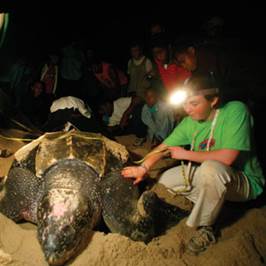 What: From Leatherback Sea Turtles to the Costa Rican Rainforest
What: From Leatherback Sea Turtles to the Costa Rican Rainforest
Where: East coast and inland rainforests of Costa Rica
When: March 30 to April 7, 2018
Participate in a wildlife expedition to Costa Rica that includes leatherback sea turtle research, rainforest ecology, whitewater rafting down the Pacuare River and a cultural exchange with Costa Rican students.
This nine-day expedition is sponsored by the Western North Carolina Nature Center in Asheville, through Ecology Project International (www.ecologyproject.org). This trip is part of the WNC Nature Center’s mission to engage youth in international citizen science for teens between the ages of 14 and 18.
There will be a free informational meeting on Saturday, Nov. 4, 10:00 to 11:00 a.m.
For more information and/or to reserve your seats, contact Keith Mastin at the WNC Nature Center at kmastin@ashevillenc.gov or 828-259-8082.
GHOST NET (noun) — Fishing nets that have been lost or abandoned at sea. Once lost, ghost nets continue to fish and impact all kinds of marine organisms, capturing and killing crustaceans, fish, turtles, birds, sharks and marine mammals — even whales. Ghost nets also damage underwater habitats, contribute to marine pollution and cause economic loss for fishermen.
WHO WE ARE — Ghost (net) Busters, funded by the National Fish & Wildlife Foundation (www.nfwf.org) and offered by UNCW MarineQuest, is a program travels around North Carolina educating youth on the environmental impacts of ghost nets.
WHAT WE DO — We have developed a creative and engaging curriculum for grades 5 to 9. Each Ghost (net) Busters program includes a discussion of the problems associated with ghost nets, followed by a hands-on, inquiry-based STEAM learning activity. Additional lessons also will be available for teachers to implement in their classrooms should they choose to use them. After our visit, students are invited to participate in a new engineering competition that will challenge them to come up with creative solutions to the ghost net problem through technological innovation.
We are now scheduling programs for the 2017–2018 school year in Brunswick, Carteret, New Hanover, Onslow and Pender counties. We would love to bring this free program to your school.
If you are interested in hosting the Ghost (net) Busters program at your school or if would like more information, please reach out to Laura Sirak-Schaeffer, Ghost (net) Busters program coordinator, UNCW MarineQuest, at sirakschaefferl@uncw.edu or 910-833-0867.
www.thebeachcombingconference.com
Join Dr. Beachcomb for another amazing beachcombing experience at the 9th annual International Beachcombing Conference, 2018 (IBC ’18) coming to North Carolina’s beautiful Crystal Coast. It will be held at the Trinity Retreat and Conference Center at Pine Knoll Shores from March 21 to 25, 2018.
IBC is a collegial, educationally focused gathering, offering consummate and beginning beachcombers with opportunities to learn more about the beachcomb experience, beach treasures, coastal conservation issues and the region in which the conference takes place.
Learning opportunities include field trips to different beaches, museums and aquariums; tutorials led by anthropologists, marine scientists, historians and experienced beachcombers; films; as well as smaller one-on-one discussion groups.
Participants will have ample opportunity to expand their coastal know-how because all activities are designed to provide a broader view of specific factors affecting where and how to beachcomb, why certain things appear on certain shorelines, and what tricks to employ to determine the age and/or origin of beach finds.
Beach arts and skill-building workshops also are offered, along with beach treasure ID sessions, goodie bags filled with an array of treasures, and a swap table teeming with donated sea glass, shells, pottery shards and much more, which is yours to comb through and pocket as much as you desire.
Most participants develop lifelong friendships and expand their beachcomb networks across the globe. Above all, you will have a BALL! It is like a summer camp for adults but comes without the naps, lousy food and spiders.
Treat yourself to an unforgettable experience at IBC ’18! North Carolina’s Crystal Coast is one of the few remaining undeveloped coastal barrier island systems in the world. It offers beachcombers islands, dune grass, shoals, wild ponies, sea turtles, pirate history, shipwrecks and unparalleled shelling. For beachcombers and nature lovers alike, it doesn’t get much better than this.
Affordable lodging is located both on-site (limited) and at nearby hotels. The conference fee includes a wine and cheese reception; family-style meals and box lunches; tutorials, mini-tutorials and films; three beachcombing expeditions; and unencumbered access to the beach treasure swap table. Arts workshops are extra.
So, what are you waiting for? Let’s go beachcombing together! Space is limited, so register early.
EarthExpeditions.MiamiOH.edu/marine
Miami University’s Project Dragonfly is accepting applications for 2018 Earth Expeditions graduate courses that offer extraordinary experiences in 16 countries throughout the world.
In Baja, students work in the diverse marine environments of the Bahía de Los Ángeles Biosphere Reserve, a UNESCO World Heritage Site. In Belize, students explore the world’s second largest coral reef system. And in Australia, students conduct research on the world’s largest reef system, working directly with the Great Barrier Reef Marine Park Authority, the organization responsible for the management and conservation of the Great Barrier Reef. Students in these courses apply field methods in reef, island, sea grass, mangrove and other marine ecosystems, while becoming part of a global alliance of professionals who work together to engage communities in science and conservation.
Earth Expeditions can build toward the Global Field Program, or GFP, a master’s degree that combines summer field courses worldwide with web learning communities so that students can complete the GFP master’s part-time from anywhere in the United States or abroad. Find details at GFP.MiamiOH.edu/marine.
Project Dragonfly also offers the Advanced Inquiry Program (AIP) master’s degree that combines web instruction from Miami University with experiential learning and field study through several AIP Master Institutions in the U.S. Applications for Miami’s 2018 cohorts are being accepted now with place-based experiences provided at zoos in Chicago, Cincinnati, Cleveland, Denver, New York, San Diego, and Seattle. More at AIP.MiamiOH.edu/marine.
Graduate tuition for all programs is greatly reduced through support from Miami University.
There are many conferences scheduled for this year. Join your fellow marine educators and beach lovers at one — or more — of these great events.
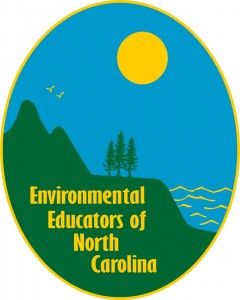 |
Environmental Educators of NC Annual Conference www.eenc.org Sept. 29 to Oct. 1, 2017 Fuquay-Varina, North Carolina |
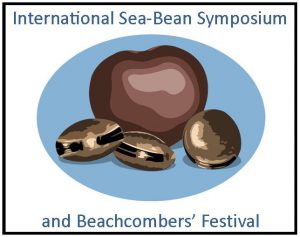 |
International Sea-Bean Symposium www.seabean.com Oct. 20 to 21, 2017 Cocoa Beach, Florida |
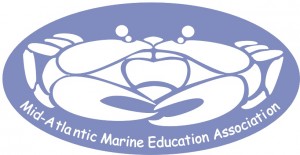 |
Mid-Atlantic Marine Education Association Annual Conference www.mamea.org/conf.html Nov. 3 to 5, 2017 Ocean City, Maryland |
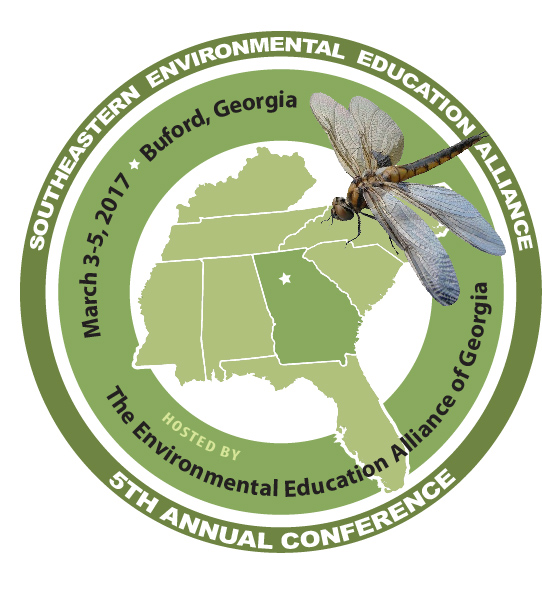 |
Southeastern Environmental Education Alliance southestee.org March 16 to 18, 2018 St. Petersburg, Florida |
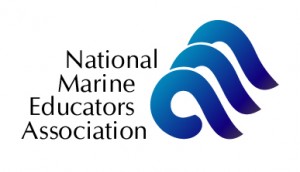 |
National Marine Educators Association’s Annual Conference www.marine-ed.org July 13 to 20, 2018 Long Beach, California |
If you ever have information to share with other marine educators, please don’t hesitate to send it my way for inclusion in a future issue of the Scotch Bonnet. Let me know what you’re hearing from the sea!
Please share this website or newsletter with others — and share my email address with anyone who wants to receive a message notifying that a new issue of Scotch Bonnet is available online. Thanks for all you do for students and for other educators!
Best Fishes!

Terri Kirby Hathaway
Marine Education Specialist
North Carolina Sea Grant
Email: terrikh@csi.northcarolina.edu
Phone: 252-475-5486
Fax: 252-475-3545
Address: North Carolina Sea Grant, PO Box 699, Manteo, NC 27954